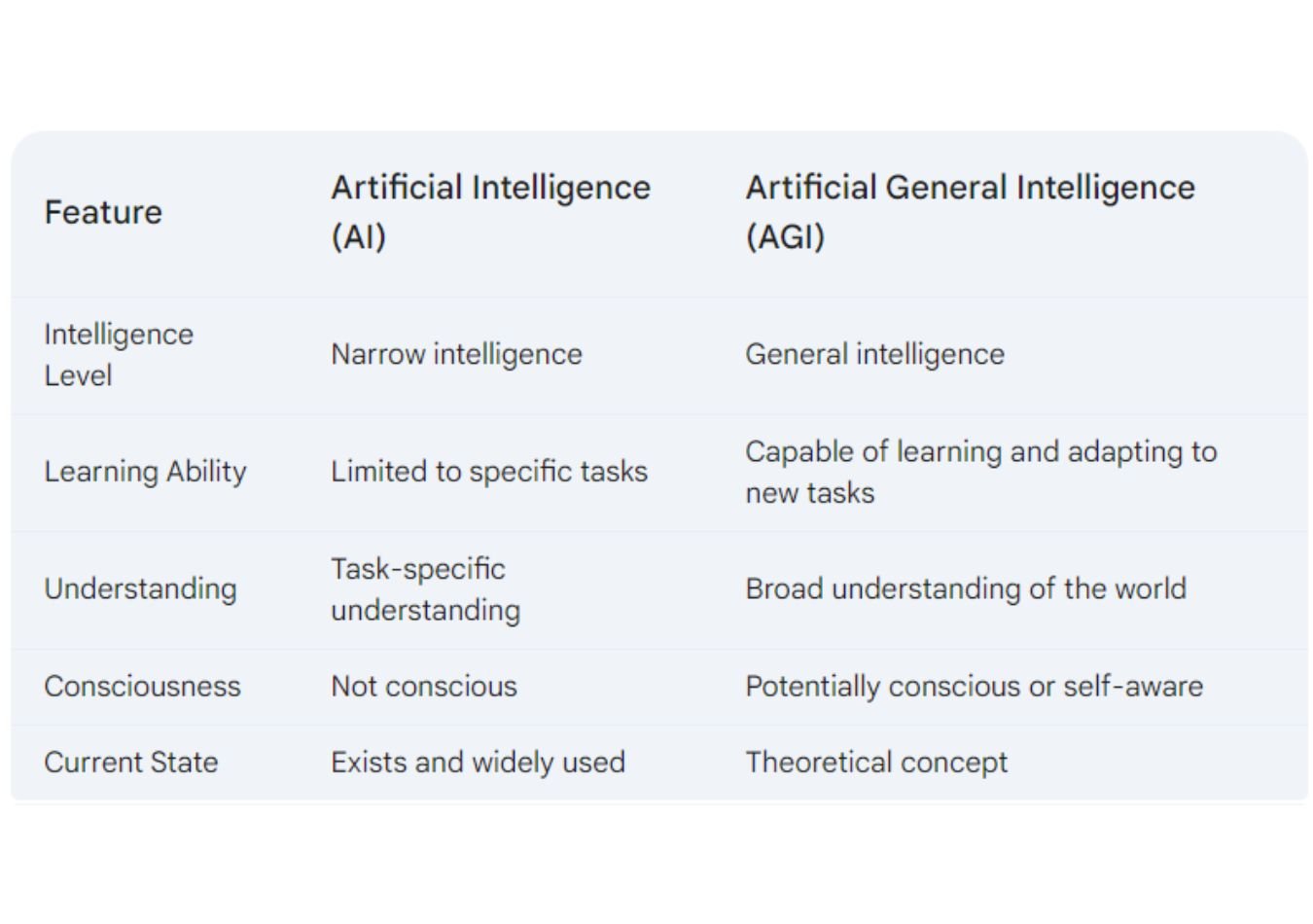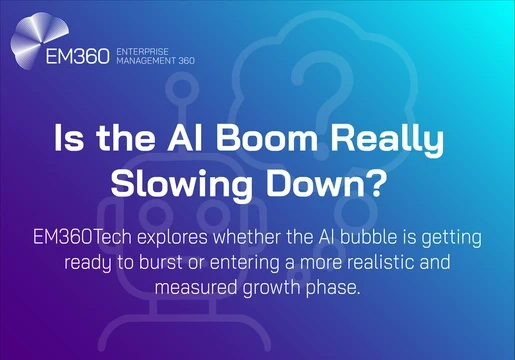The tech world has been abuzz with AI for the last few years, only further amping up further since OpenAI launched ChatGPT in 2022
But now that AI seems to have conquered everything from medicine to a sense of smell, what comes next?
Enter Artificial General Intelligence, the next frontier of artificial intelligence.
In this article we’ll tell you everything you need to know about artificial general intelligence, how AGI is different from AI and how close we are to its development.

What is Artificial General Intelligence?
Artificial General Intelligence is a theoretical kind of artificial intelligence that matches or supasses human intelligence and understanding.
This kind of advanced artificial intelligence is thought to be the end aim of massive AI companies like OpenAI, the giant behind ChatGPT and Meta, the tech superpower best known for Facebook.
OpenAI’s Charter describes the principles the company is founded around to guide employees ‘in acting in the best interests of humanity throughout its development.’ As part of this charter, OpenAI state that their mission ‘is to ensure that artificial general intelligence (AGI)—by which we mean highly autonomous systems that outperform humans at most economically valuable work—benefits all of humanity. We will attempt to directly build safe and beneficial AGI, but will also consider our mission fulfilled if our work aids others to achieve this outcome.’
The charter goes on to explain the steps that the AI giant will take in their building of safe and beneficial artificial general intelligence. OpenAI commits to using AGI for the benefit of humanity and avoids enabling uses that would be used to harm humanity or ‘unduly concentrate power.’
The AI giant also stresses their focus on ensuring long term safety. This includes taking themselves out of the race for AGI if a competitor that is a ‘value-aligned, safety-conscious project’ comes close to realizing AGI before OpenAI, the current AI leader will ‘commit to stop competing with and start assisting this project.’
Meta’s Founder and CEO, Mark Zuckerberg acknowledged the race for artificial general intelligence, stating “In order to build the products that we want to build, we need to build for general intelligence. I think that’s important to convey because a lot of the best researchers want to work on the more ambitious problems.”
How is AGI Different from AI?
AI is designed to excel in a specified field or at a particular narrow task. Artificial general intelligence on the other hand aims to possess human-level intelligence and the ability to understand, learn, and apply knowledge across various tasks.
Whilst AI excels in fields like facial recognition, making recommendations or powering chatbots systems, currently limited by their lack of ability to generalize knowledge and learn tasks outside of their programming.

Artificial General Intelligence on the other hand would have the ability to understand, learn, and apply knowledge across new tasks. It would be able to apply reasoning whilst problem solving and potentially even have a sense of self-awareness.
How Close Are We To Artificial General Intelligence?
The timeline on how close we are to artificial general intelligence is debatable.
OpenAI, the giant behind ChatGPT, state ‘the timeline to AGI remains uncertain,’ but stresses that AGI would come with ‘serious risk of misuse, drastic accidents, and societal disruption’.
Ultimately, AI companies are racing to be the first to develop genuine AGI, further fueling the current rapid pace of AI research. While this drive for innovation can lead to significant advancements, it also raises concerns about the ethical implications and potential consequences of AGI.







Comments ( 0 )